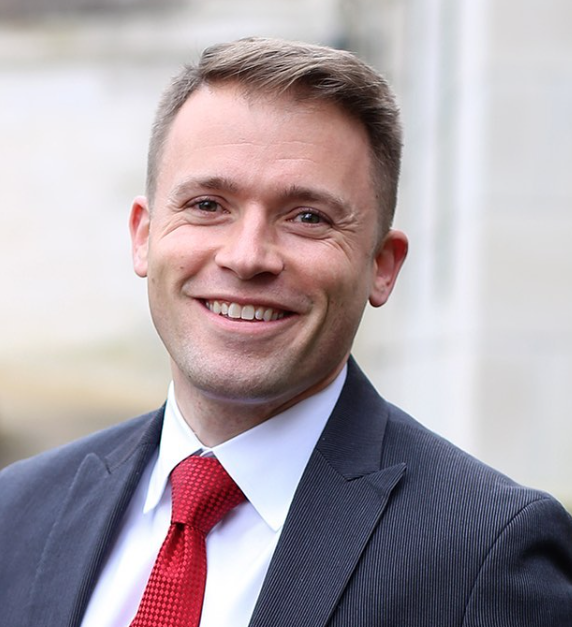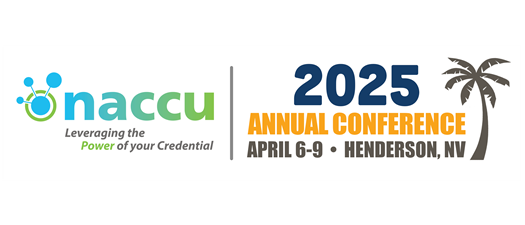NACCU 2025 Annual Conference
The Westin Lake Las Vegas Resort & Spa
101 Montelago BoulevardHenderson, NV 89011-3203
United States
NACCU 2025 Annual Conference
Henderson, NV
April 6-9, 2025
Quick links:
NACCU 2025 is where campus identification and transaction systems professionals in higher education gather to:
- Connect with others who do what you do
- Expand your knowledge at educational sessions
- Explore trends in technology and services in the exhibit hall
- Learn about options to bring more convenience, efficiency, and service to your campus community
The NACCU Annual Conference is the only major conference event that focuses specifically on the technological advances, marketing innovations, and business practices involved with implementing, operating, and expanding a successful campus card program.
Click here to review options, fees, and policies before registering.
Meet your keynote speakers!
Scott Dikkers
 Peeling the Onion: The inside story on Marketing & Branding the Original Fake News
Peeling the Onion: The inside story on Marketing & Branding the Original Fake News
How did The Onion, a small college newspaper from Madison, Wisconsin, compete in the cutthroat world of entertainment marketing to become one of the most recognizable and successful comedy brands in the world? You may be surprised to learn it was done without spending a penny on marketing. Scott Dikkers, The Onion’s longest-serving editor-in-chief who founded theonion.com, helped found the print publication that preceded it, and led the company’s effort to build the brand in its formative decades, tells the unlikely and outrageous tale of exactly how The Onion—now a multi-million-dollar company with tens of millions of monthly views online—thrived against all odds to achieve heightened brand awareness and a fiercely loyal fan base. He leaves audiences inspired to do the same for their own companies and institutions.
Dr. Adam Brooks
 Setting the Stage to Find Your Champions: The Transformative Impact of Campus Card Advocates
Setting the Stage to Find Your Champions: The Transformative Impact of Campus Card Advocates
In a world where seamless integration and strategic insight drive institutional success, the campus card system stands as a critical gateway to campus services, student engagement, and operational efficiency. But what truly elevates its role is the dedication of individuals who champion its potential. While those of you who are responsible for campus card programs are natural champions for the campus card, Dr. Brooks will guide you to reimagine how collaboration and stronger partnerships can help you open doors, enhance your card system’s role, and potentially make your job easier.
Get even more out of your conference experience!
Add one of these experiences to your conference registration! Space is limited, so register early.
NACCU Pre-Conference Data Summit
1.5 Day Workshop
Saturday, April 5 9:00 a.m. – 4:00 p.m.
Sunday, April 6 9:00 a.m. – 12:00 p.m.
Are you ready to transform how you leverage data from your campus card systems?
Tackling data complexity may seem challenging, but NACCU is here to empower you to:
- Combine insights from multiple data sources to build comprehensive, powerful dashboards that drive action.
- Automate reporting processes, enabling you to respond to trends swiftly, address issues with precision, and capitalize on opportunities as they arise—all without hours of manual data work.
Join us at the pre-conference Data Summit in April 2025 to master the tools you already have and become a data champion on your campus. With NACCU’s guidance, data-informed decision-making is within reach. Don’t let data complexities slow you down. Take this opportunity to become your campus's data hero!
NACCU Industry Essentials Institute
Sunday, April 6 10:00 a.m. – 4:00 p.m.
The IEI is a full day workshop that provides you with a comprehensive professional development opportunity to broaden your understanding of the transaction and identification industry and allow you to establish a network of peers to turn to in the future. Sessions and events are specifically designed to help attendees learn the fundamentals of campus card programs, industry best practices, and communication techniques. You will participate in valuable discussions and make new connections with your peers. Learn more about the IEI program here.
Post-Conference Campus Tour: University of Nevada Las Vegas
Thursday, April 10 8:00 a.m. – 12:00 p.m.
IMPORTANT: We have already filled one bus for this tour and we have started a waiting list for a second bus. If you are interested in being added to the waiting list, please e-mail Crissy Sampier at crissy@naccu.org with your school name, the names of those interested in being added to the waiting list, and their e-mail addresses. A decision will be made on whether we add another bus later this month.
Join us for an immersive tour of UNLV’s vibrant campus and experience the RebelCard—the university’s campus ID—in action at a variety of unique and innovative spaces. Highlights include an autonomous marketplace, a campus eatery and ghost kitchen, and specialty vending machines, and the International Gaming Institute.
We'll explore facilities that contribute to UNLV's status as a Top Tier research university. Our stops include:
- Lied Library – home to the brand new, cutting-edge virtual reality (VR) Dreamscape Learn Classroom and expansive makerspace and multimedia studios open to students, faculty, and staff.
- Hospitality Hall – featuring an executive kitchen, student-run café, and PGA Golf Management learning center with state of the art motion capture technology.
- RebelCard Office, Bookstore, and iconic campus art installations, such as the Flashlight statue.
- Fertitta Football and Sports Complex
- Stan Fulton International Gaming Institute
UNLV is a public, urban research university, honored with the Carnegie Foundation’s R1 designation for excellence in research and community engagement. With a total enrollment of nearly 33,000 students, UNLV is a bustling hub of innovation and learning, and approximately 1,629 students call the campus home.
Transportation: The tour bus will drop off participants at Harry Reid International Airport (LAS) by noon and continue to the Westin Lake Las Vegas for remaining attendees.
Scam Alert
Events like the NACCU Annual Conference are often targeted by third-party companies. It is important to only respond to event emails that originate from NACCU. Please report any unauthorized emails to NACCU. Save the email so you can forward it to us following your report.
In addition to the emails, there are now unauthorized calls being made to exhibitors. These calls do not originate from NACCU and should be ignored and blocked.
Hotel Room Reservations
NACCU makes contracts with event hotels to ensure our attendees and exhibitors receive fair rates and to guarantee your reservations. You may receive emails from third parties trying to mislead you into booking reservations through their companies.
You may also receive emails or calls from third parties trying to mislead you into booking hotel reservations through their companies. As an exhibitor, please be aware that solicitation of hotel reservations from any company other than NACCU is not approved. Please only book through the official link provided on our website.
Reservations made by unaffiliated organizations may appear to have lower rates, however they may be illegitimate, not have the rooms to sell, have unreasonable cancellation or change penalties, not include perks or services packaged with your NACCU reservation, be completely non-refundable, or be an attempt to steal your credit card or personal information. Please only book through links provided directly by NACCU in email or on the NACCU website.
Attendee Lists
We are dedicated to ensuring the privacy of your data. As an event participant, to facilitate networking with colleagues, we include your name, title, and organization in the event mobile app, unless you opt out of sharing this information during the registration process. We also allow you to opt-in to share your contact information with exhibitors during the registration process, so that you can receive event invitations, booth promotions, prize drawings, and offers from our exhibitors. This information is only accessible by registered conference participants.
NACCU does not sell lists or email addresses to third parties or condone the harvesting of our attendee lists. We encourage you to reject all offers you may receive to purchase such a list, as the information provided will not be provided by NACCU and will be inaccurate, or the third party may intend to steal your credit card or personal information.
For more information on what data we collect, why we collect it, and how we protect it, please view our Privacy Policy.

